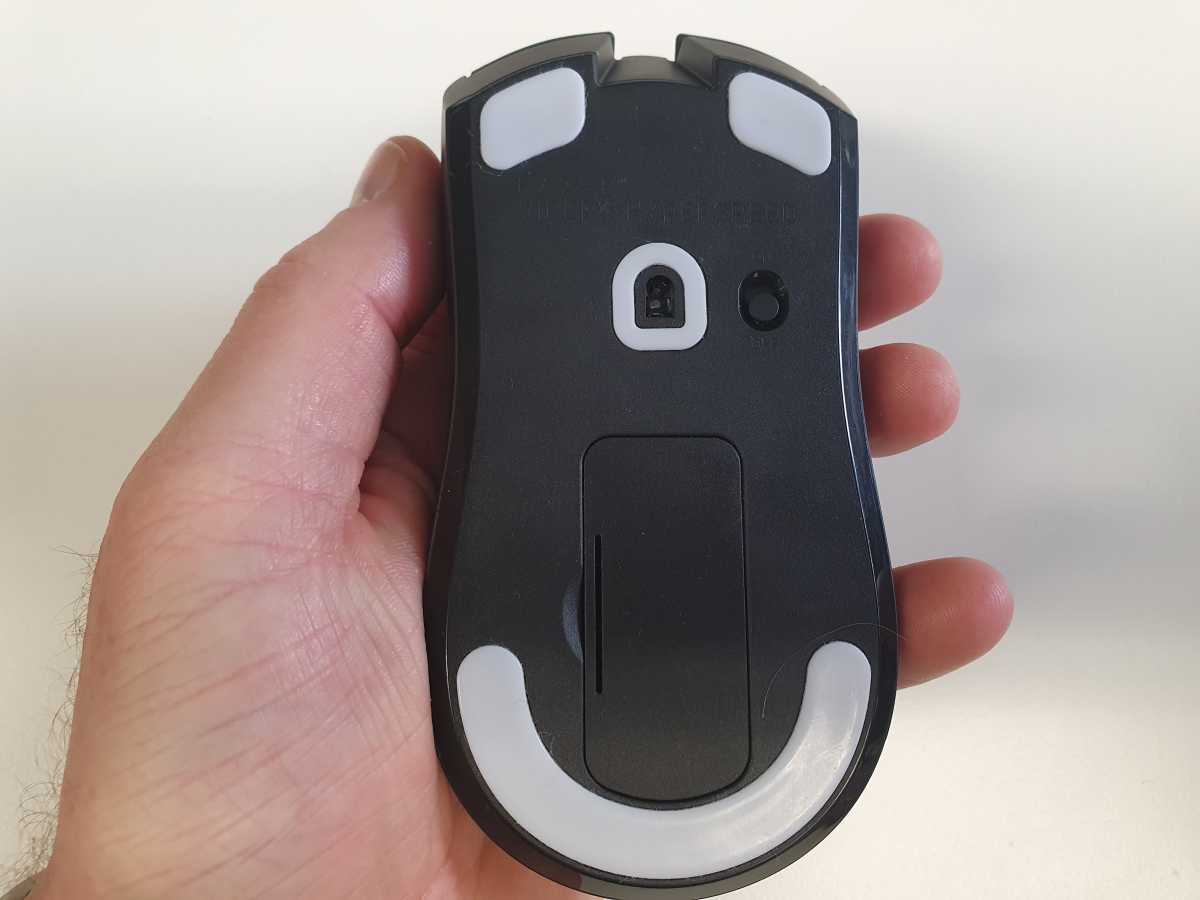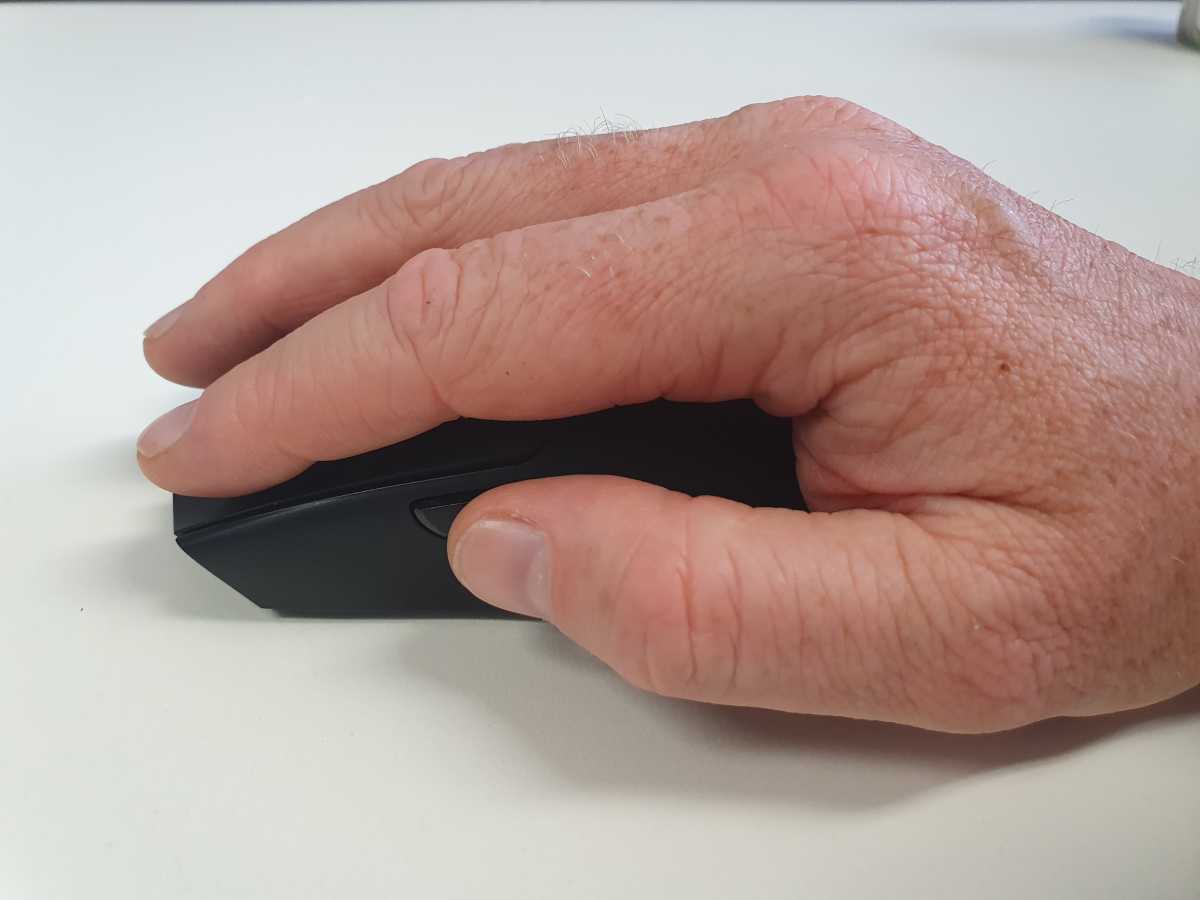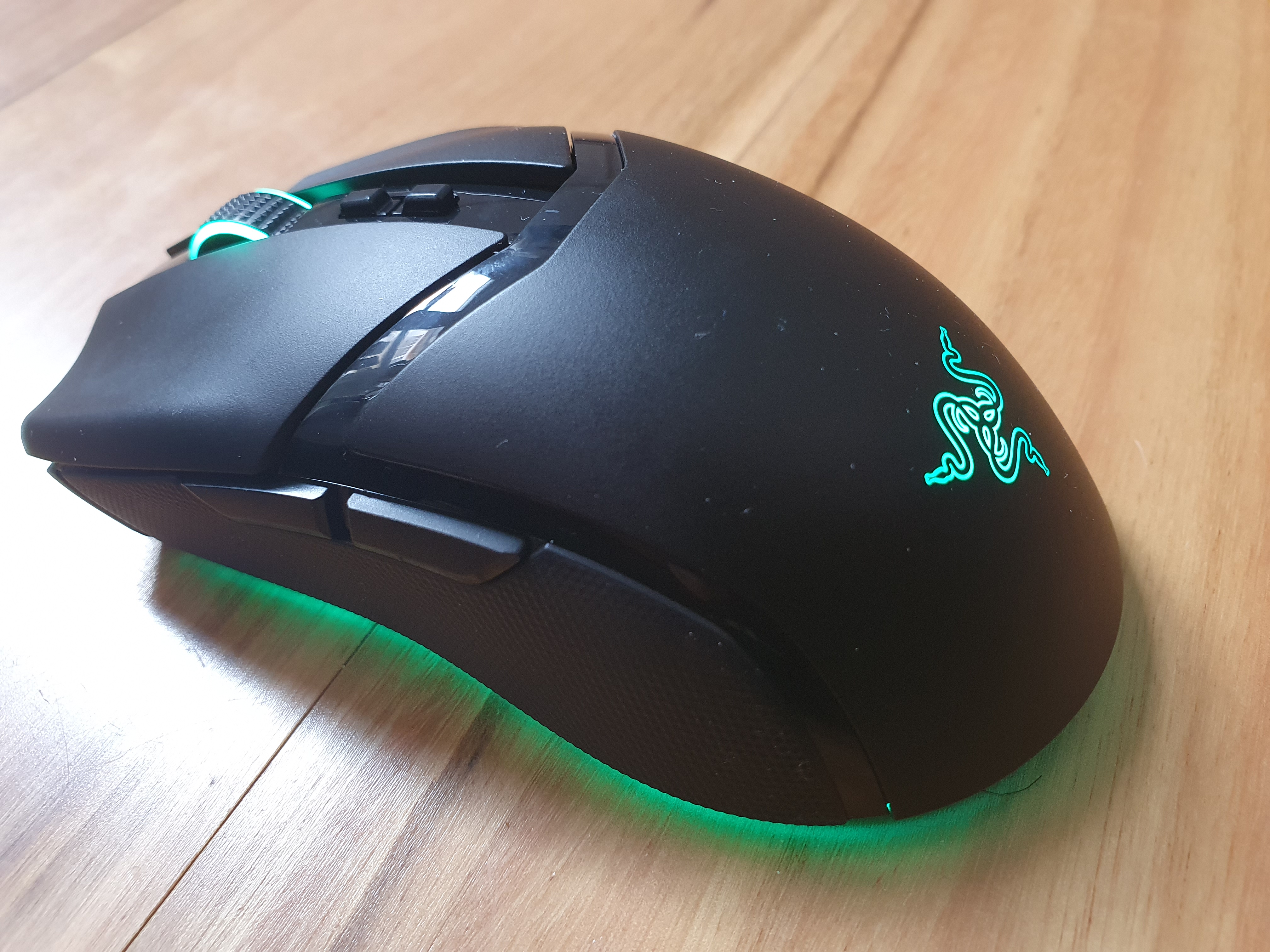 At a glance
At a glanceExpert's Rating
Pros
- Quick and accurate sensor
- High sensor positioning
- Very long battery life
- Hyperpolling support
Cons
- No RGB lighting
- 2.4GHz Wi-Fi connectivity only
- Weighs less than 3 ounces
Our Verdict
The Razer Viper V3 HyperSpeed mouse sports modest looks, but is a real performance juggernaut. Its handling is superb and its 30K Razer Focus Optical Sensor is fast and accurate. It also supports 4K HyperPolling for the quickest responses in competitive games.
Best Prices Today: Razer Viper V3 Hyperspeed
The Razer Viper V3 HyperSpeed is a standout performer in Razer’s lineup, being extremely well honed for esports, yet it’s surprisingly modest — it relies on just battery power and has no RGB lighting. With a full-bodied grip, lots of length in the fingers and a high back, you’d be hard pressed finding a more comfortable gaming mouse.
The hardware is about as good as it gets too — Razer’s own 30K Optical Sensor provides this mouse with the kind of accuracy and precision most gamers would pay hundreds more for, yet it costs just $69.99 (£69.99) at Razer. Read on to find out more.
Razer Viper V3 HyperSpeed: Design and build
First impressions of the right-handed, V3 HyperSpeed is that it has one of the shiniest casings of any mouse I’ve reviewed. That usually means an inevitable collection of fingerprints and smudges on the mouse’s surface, but the V3 HyperSpeed somehow manages to keep its slick surface entirely smudge free. It’s also surprisingly grippy.
The V3 is a full-bodied mouse, in the sense that it fills up your whole palm so that you get a high-precision grip. Razer says the V3’s design is particularly optimized for claw and fingertip grips, but it worked well for this palm gripper. It measures 5.0 x 2.51 x 1.57 inches, which makes it slightly narrower and lower to the table than the Razer DeathAdder V3 Pro.
The main clicks are slightly flared, but still sit streamlined within the frame, while the mouse wheel is compact — it feels more plastic than rubber, but it’s still very responsive. The V3 also has good length, allowing you to stretch out your fingers in a palm grip. All up it has eight programmable buttons if you count the mouse wheel as three clicks.

The Razer Viper V3 HyperSpeed has a high-positioned sesnor.
Dominic Bayley / IDG
To styling, the V3 gets by with a symmetrical, unicolor body and no RGB lighting — in other words, it isn’t anywhere near as flashy as the Razer Cobra Pro. It omits any kind of distraction to performance and lets its hardware do the talking, which is just fine by me. The only real detail is a black-on-black logo on the mouse’s rear — you have to look closely to see it, but somehow that makes it all the more worthwhile.
On the underside, the V3 HyperSpeed features a neat slot to house a battery. The sensor position is quite high up towards your fingers. All up, the mouse weighs 2.89 ounces (82 grams) when the AA battery is enclosed — which just qualifies it for “ultra-light” status. I’m used to ultra-light mice weighing around 2 ounces (54 to 65 grams), but in this case, I found the extra weight gave a predictable, even feel to my hand movements.
Still on the underside, the V3 HyperSpeed has a decent smattering of 100 percent PTFE material for gliding over surfaces — it forms a hoop at the rear and two feet at the front. There’s also a large ring of it around the sensor for reducing friction.
Razer Viper V3 HyperSpeed: Connectivity
The V3’s connectivity is simple but effective. There’s no Bluetooth, instead it relies on a tiny dongle for a low-latency 2.4GHz Wi-Fi connection.
In 2023 we’ve seen a fair few Razer mice made esports-capable with support for 4,000Hz HyperPolling. The V3 HyperSpeed joins that club, although Razer’s HyperPolling dongle is sold separately and costs $29.99 extra at Razer’s online store. If you don’t feel like shelling out for one, the standard 1,000Hz polling rate is still extremely quick for competitive gaming.
The HyperSpeed’s battery life is very respectable. It proved too long for me to run down in my playtesting for this review, but as a guide, Razer says a single AA battery provides 280 hours at 1,000Hz polling or 75 hours at 4,000Hz HyperPolling.
Clearly there’s an advantage to the HyperSpeed being battery powered; a comparison shows that it has 190 hours more battery life than the DeathAdder V3 Pro at 1,000Hz and 51 hours more at 4,000Hz.
How does the Razer Viper V3 HyperSpeed perform?
I first unboxed the V3 HyperSpeed on an airplane tray table where it proved exceptionally quick on the faux wood surface. Back home on my neoprene mouse mat it was also a lighting performer, the wide front and high back giving me precise control over my movements.
The sensor’s high positioning up under my fingers seemed to pick up movements an instant quicker than mice with sensors placed further to the rear.

The Razer Viper V3 HyperSpeed has a comfortable design that gives you precision control of movement
Dominic Bayley / IDG
The V3 HyperSpeed sports a Razer Focus Pro 30K Optical Sensor which is one of the best sensors Razer has to offer. It has a top-line resolution of 30,000 DPI, max speed of 750 inches per second and max acceleration of 70 G.
Needless to say, the HyperSpeed’s sensor proved impressively quick and accurate in my FPS trials. The sensor’s high positioning up under my fingers seemed to pick up movements an instant quicker than mice with sensors placed further to the rear. Adding the 4,000Hz HyperPolling dongle that Razer sent me, and I had formidable speed to play with, the likes of which I’ve scarcely seen in other mice — even the Razer DeathAdder V3 Pro.
The HyperSpeed’s buttons felt soft and quick. While Razer has imbued the DeathAdder V3 Pro with Razer 3rd Generation Optical Switches, the V3 HyperSpeed by comparison has softer-feeling Gen 2 Mechanical Switches.
Since they’re so soft, you don’t lose much actuation speed when you click rapidly — which has been one of the criticisms assigned to mechanical switches compared to optical switches. Razer’s Gen 2 Switches have proven their worth in esports matches and should be a popular choice here for competitive gamers.
Razer Viper V3 HyperSpeed: Software
As well as changing the DPI setting, polling rate, and programming in your commands, there are a few extra settings you can change in Razer’s Synapse app to tailor the V3 HyperSpeed exactly how you like it. My favorite performance booster is Razer’s Asymmetric Cut-off.
The big wow factor here is that in addition to selecting your ideal liftoff distance you can also choose your preferred landing distance, or the point at which you want the mouse to start tracking again when you place it down. There are 26 granular distances to choose from, which is a lot more than you will find in rivals. Suffice to say, if you’re prone to lifting, this setting can really help save your game.
Should you buy the Razer Viper V3 HyperSpeed?
I’m used to the showiest of gaming mice being the ones boasting the most impressive hardware, but the Razer V3 HyperSpeed turns the tables on that concept entirely. Although it’s modestly styled, its 30K Razer Focus Sensor is exceptionally precise and the mouse’s handling is about as good as it gets — even though it weighs more than your average esports mouse — nearly 3 ounces (82 grams).
As if Razer’s 30K Optical Sensor isn’t enough speed for you right off the bat, Razer has positioned the sensor high on the mouse’s underside for even quicker control. Add 4,000Hz HyperPolling support to the mix, and in the V3 HyperSpeed you’re really cooking with fire. Suffice to say, for just $69.99, Razer’s V3 HyperSpeed is an exceptional value-for-money buy.


